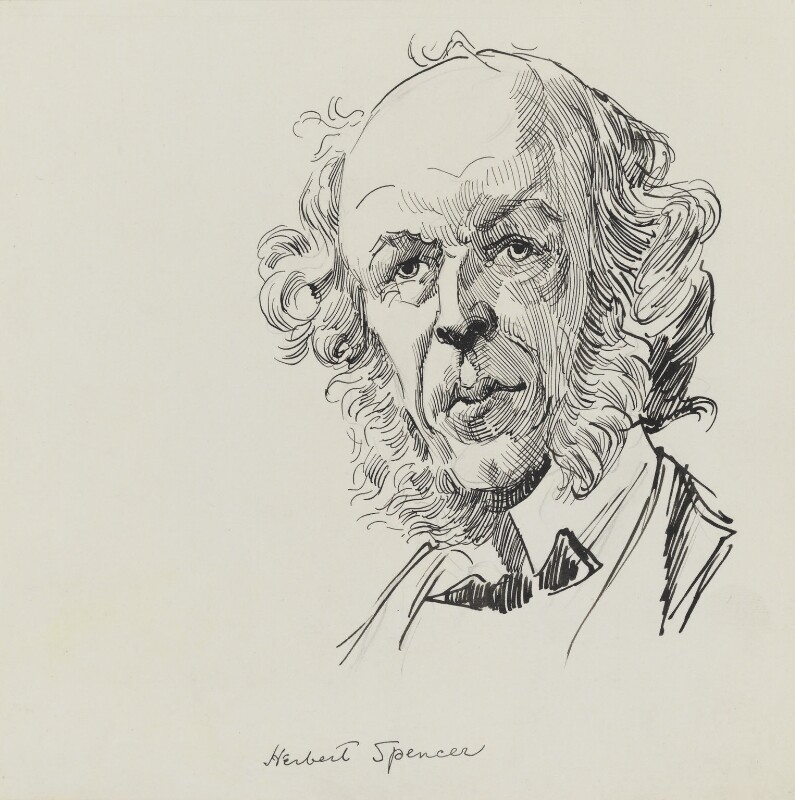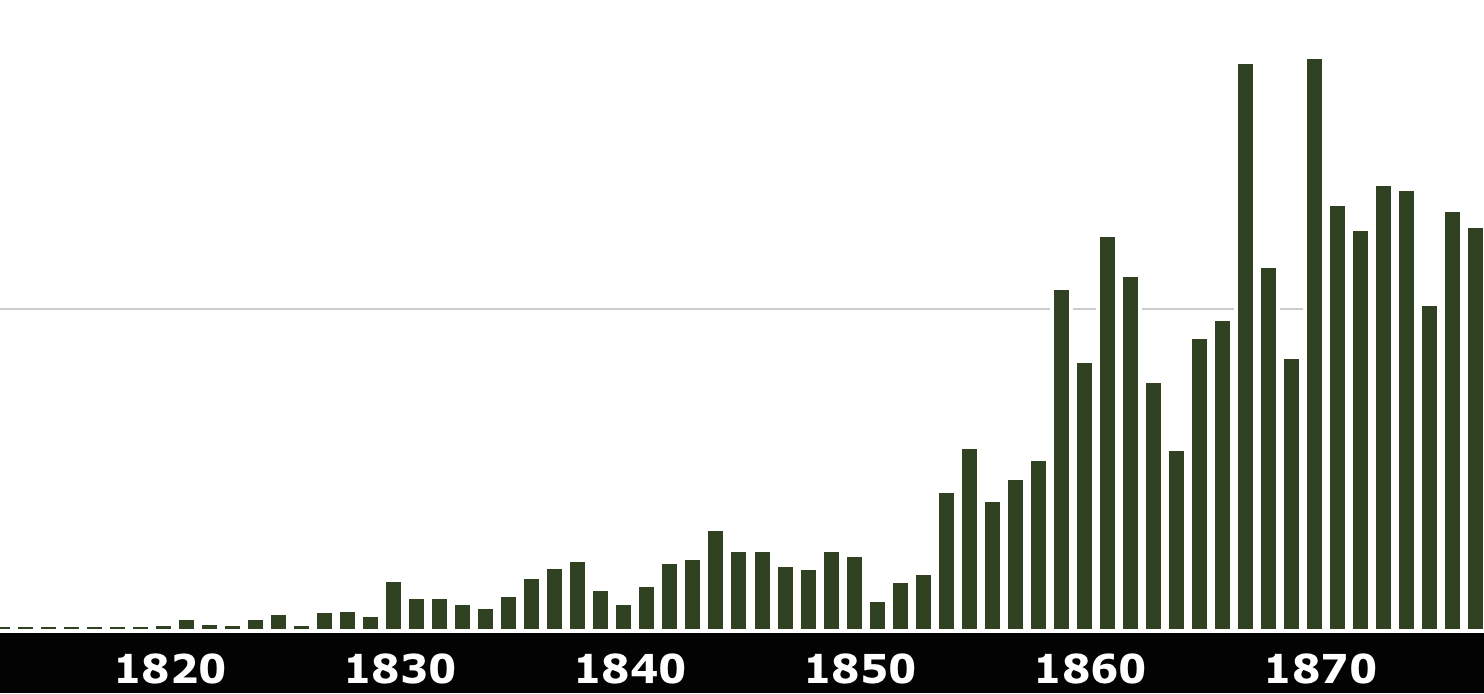This term is the plain expression of the facts,-Nat. selection is a metaphorical expression of it-and to a certain degree indirect & incorrect, since, even personifying Nature, she does not so much select special variations, as exterminate the most unfavourable ones.
(Alfred Russel Wallace to Charles Darwin, 2 July 1866)
Continued from 'Natural Selection: the trouble with terminology, Part I'
The most forceful and persistent critic of the term 'natural selection' was the co-discoverer of the process itself, Alfred Russel Wallace. Wallace seized on Herbert Spencer's term 'survival of the fittest', explicitly introduced as an alternative way of expressing 'natural selection' in the October 1864 instalment of Spencer's Principles of biology (Spencer 1864-7, 1: 444-5, 2: 48, et passim). Wallace was so taken with it that he went through his own copy of the first edition of Origin neatly crossing through every occurrence of 'natural selection' and pencilling 'survival of the fittest' in the margin (the copy is now in Cambridge University Library, Keynes.M.2.27). Shorthand for the survival and perpetuation of those organisms best fitted, or suited, to take advantage of their circumstances, the term has often itself been misinterpreted simply to mean the survival of the strongest or most healthy.
In July 1866 Wallace wrote Darwin a long and impassioned letter in support of replacing 'natural selection' with 'survival of the fittest' in all future editions of Origin. 'I have been so repeatedly struck' he wrote, detailing a number of instances where 'natural selection' had been taken to assume an 'intelligent "chooser"', 'by the utter inability of numbers of intelligent persons to see clearly or at all, the self acting & necessary effects of Nat Selection, that I am led to conclude that the term itself & your mode of illustrating it, however clear & beautiful to many of us are yet not the best adapted to impress it on the general naturalist public.'
Darwin used the term survival of the fittest in the last paragraph of Variation (2: 432), but although he altered the chapter heading in Origin from 'Natural selection' to 'Natural selection or survival of the fittest' in the fifth and all later editions, and did often use 'survival of the fittest' alongside 'natural selection', he argued that it was too late to make a wholesale swap. He accepted that 'survival of the fittest' was an 'excellent expression', but pointed out that it could not always be substituted grammatically, a defence he used more than once, and that Spencer also continued to use both terms. In fact Spencer was forced to defend his term too when James Martineau, in his article 'The place of mind in nature and intuition in man' (J. Martineau 1871), became one of the first of many to misinterpret 'survival of the fittest' as 'survival of the better' (see Spencer 1872, and the letter to Herbert Spencer, 10 June [1872]).
By this time 'natural selection' had been so widely used that, 'with all its faults' Darwin said, he would be sorry to see it replaced: 'whether it will be rejected must now' he wryly joked, depend itself on 'the survival of the fittest'.




